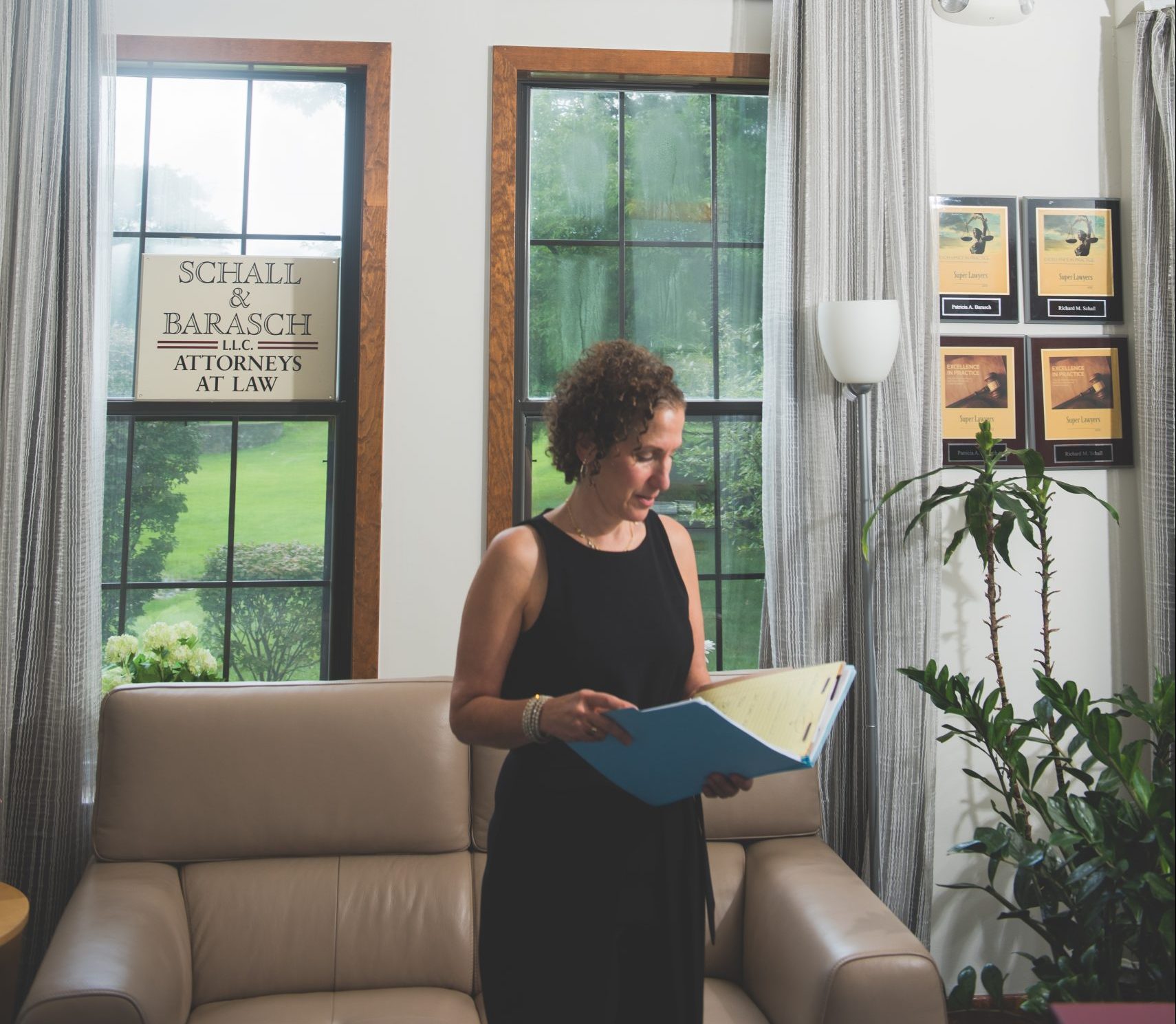Reasonable Accommodation For Disabled Employees
Need Employment Law Representation From an Experienced New Jersey Lawyer?
Over 30 Years Experience
Enter description text here. Lorem ipsum dolor sit amet, consectetur adipiscing. Quo incidunt ullamco.
Meet Attorney Barasch
Enter description text here. Lorem ipsum dolor sit amet, consectetur adipiscing. Quo incidunt ullamco.
Reasonable Accommodation for Disabled Employees in New Jersey.
Know Your Rights. Contact Our New Jersey Reasonable Accommodation Lawyer.
The Americans with Disabilities Act (ADA) and the New Jersey Law Against Discrimination (NJLAD) not only prohibit employers from discriminating against disabled employees, but they also impose upon employers a critical affirmative duty — the obligation to provide “reasonable accommodation” to disabled employees so as to allow them to remain gainfully employed despite any limitations imposed by their disability.
A “reasonable accommodation” is exactly what it sounds like – any accommodation or assistance an employee may need to allow him or her to continue to successfully perform a job. The only limitation is that the accommodation should not impose an “undue hardship” on the employer.
Reasonable accommodations can be something as simple as providing a chair for the employee to sit on, or they can be something much more complex such as restructuring a job to take away certain duties the disabled employee can no longer perform, allowing the employee to work on a reduced or modified schedule, or allowing the employee to work from home.
How to Request a Reasonable Accommodation
In general, you, as an employee, are responsible for requesting a reasonable accommodation, and your employer is required to address your request promptly.
- To start, you must make your employer aware of your disability and need for accommodation. Do this in writing, such as an email or a dated letter, and save a copy for yourself.
- Write your request in plain English and clearly explain your condition and why you need an accommodation that will allow you to continue to effectively work. You may also provide your ideas about what accommodations you think would be helpful.
- In response, your employer may ask you questions to gain more information or ask for medical documentation, such as a note from your doctor. It is important to note that your employer may ask for “sufficient” medical documentation, but not excessive. If you do not provide the necessary information, your accommodation may be denied. However, your employer should not request documentation that is outside of the scope of the disability or medical limitation you are asking to be accommodated.
- After your employer has a full picture of your limitations, they are required to engage with you in an “interactive process” to determine whether and how your disability can be accommodated.
- If your employer fails to engage with you in this interactive process, it is violating your rights under the New Jersey Law Against Discrimination.
Once you have successfully received reasonable accommodation, it is your responsibility to ensure it is working for you. If it is not, or if something changes with your condition, you may repeat the process of asking for a new or updated accommodation.
Leaves of Absence as a Reasonable Accommodation Under the NJLAD
Recently, the New Jersey reasonable accommodation attorneys at Schall & Barasch LLC have handled a number of cases for New Jersey employees involving the intersection of their rights under the Family and Medical Leave Act (FMLA) and the New Jersey Law Against Discrimination. Under the FMLA, employers must give employees up to 12 weeks of leave to recover from a “serious health condition.” Some employers have failed to realize that after the 12 weeks of protected FMLA leave run out, an employee can request a medical leave extension beyond the 12 weeks, asserting a right to an extension of the leave as a reasonable accommodation under the NJLAD. If the employer unreasonably denies that extension, they open themselves to liability. These cases are relatively straightforward and are very winnable.
It is important to keep in mind that any request for an extension of a medical leave of absence beyond the 12 weeks provided by the FMLA must be for a reasonable and limited period of time. It is advisable to have a doctor’s note stating that you will be able to return on a certain date.
Attorney Patricia Barasch has handled many reasonable accommodation cases, including successfully litigating the case of Seiden v. Marina Associates, the very first case in the State of New Jersey to address the framework the courts should use to analyze reasonable accommodation cases.
At Schall & Barasch LLC, we enjoy the challenge of tackling the most complex legal issues, taking on the biggest corporations in New Jersey along with their law firms, and standing up for the rights of our clients to be free from disability discrimination in the workplace.
Where do I start?
Contact New Jersey disability discrimination lawyer Patricia Barasch to get started. No one should have to feel intimidated or unsafe in their work environment. If you believe you’ve been denied reasonable accommodation at work and would like advice, guidance, and strategy as to how to deal with it, we encourage you to set up a consultation.
What happens during a consultation?
During your consultation with Patricia Barasch, you will discuss the details of your reasonable accommodation denial experience. You will be asked about your specific requests and the company’s response, if any. Our team will want to understand the impact reasonable accommodation denial has had on you, both professionally and personally. Patricia will assess whether your situation meets the legal criteria for disability discrimination and provide you with information about your options. It is crucial to consult with a lawyer experienced in reasonable accommodation and who understands New Jersey law so that you can determine the best course of action.
Do all reasonable accommodation denial cases go to trial?
No, just because you bring forth a reasonable accommodation denial case against your employer, it does not mean you will be heading toward a trial. Some cases can be resolved through settlement or mediation. An experienced disability discrimination lawyer like Patricia Barasch will help you explore settlement or mediation as potential options before proceeding to trial. In other cases, a trial may be the only way to achieve a full measure of justice for you, and if that is the case, the team at Schall & Barasch is ready, willing, and able to take your case in front of a jury.
Additional Resource on Reasonable Accommodations
Reasonable Accommodation Explained: What Every Disabled Employee Should Know About NJLAD
If you’re a disabled employee or applying for a job in New Jersey, you have the right to ask for changes that let you handle the core parts of the job effectively.
Read MoreInfo Box
If you believe you have been denied reasonable accommodation, please contact our firm online by completing our brief and secure questionnaire.
Tenacious & Strategic, Your Case Deserves a Voice. Dedicated to Protecting the Rights of New Jersey Employees



